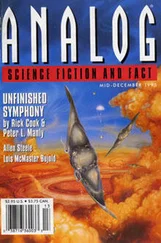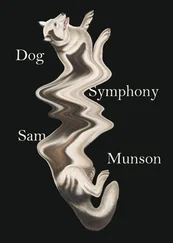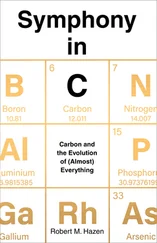I called the guard and ordered him to light the prisoner's cigarette whenever he wants to smoke. Then I left and before having a couple of hours rest I gave instructions that Rakovsky was to have half a litre of milk with sugar.
* * *
We prepared for the meeting with Rakovsky at midnight. Its "friendly" character was stressed in all the details. The room was well warmed, there was a fire in the fire-place, soft lighting, a small and well-chosen supper, good wines; all had been scientifically improvised. "As for a lovers meeting," observed Gabriel. I was to assist. My chief responsibility was to give the prisoner the drug in such a manner that he would not notice it. For this purpose the drinks had been placed as if by chance near me, and I shall have to pour out the wine. Also I would have to observe the weakening of the drug's effect, so as to give a new dose at the right moment. This was my most important job. Gabriel wants, if the experiment succeeds, to get already at the first meeting real
{p. 9} progress towards the essence of the matter. He is hopeful of success. He has had a good rest and is in good condition. I am interested to know how he will struggle with Rakovsky who, it seems to me, is an opponent worthy of him.
Three large arm-chairs were placed before the fire. The one nearest the door is for me, Rakovsky will sit in the middle, and in the third will be Gabriel, who had shown his optimistic mood even in his clothes, as he was wearing a white Russian shirt.
It had already struck midnight when they brought the prisoner to us. He had been given decent clothes and had been well shaved. I looked at him professionally and found him to be livelier.
He asks to be excused for not being able to drink more than one glass, mentioning the weakness of his stomach. I did not put the drug into this glass and regretted it.
The conversation began with banalities ... Gabriel knows that Rakovsky speaks much better French than Russian and begins in that language. There are hints about the past. It is clear that Rakovsky is an expert conversationalist. His speech is exact, elegant and even decorative. He is apparently very erudite; at times he quotes easily and always accurately. Sometimes he hints at his many escapes, at exile, about Lenin, Plekhanov, Luxemburg, and he even said that when he was a boy he had shaken the hand of the old Engels.
We drink whisky. After Gabriel had given him the opportunity of speaking for about half an hour, I asked as if by chance: "Should I add more soda water?" "Yes, add enough" he replied absentmindedly. I manipulated the drink and dropped a tablet into it, which I had been holding from the very beginning. First I gave Gabriel some whisky, letting him know by a sign that the job had been done. I gave Rakovsky his glass and then began to drink mine. He sipped it with pleasure. "I am a small cad" I told myself. But this was a passing thought and it dissolved in the pleasant fire in the fire-place.
Before Gabriel came to the main theme, the talk had been long and interesting.
I had been fortunate in obtaining a document which reproduces better than a shorthand note all that had been discussed between Gabriel and Rakovsky. Here it is:
INFORMATION
THE QUESTIONING OF THE ACCUSED CHRISTIAN GEORGIEVITCH RAKOVSKY BY GAVRIIL GAVRIILOVITCH KUS'MIN ON THE 26TH JANUARY, 1938.
Gavriil G. Kus'min. In accordance with our agreement at the Lubianka, I had appealed for a last chance for you; your presence in this house indicates that I had succeeded in this. Let us see if you will not deceive us.
Christian G. Rakovsky. I do not wish and shall not do that.
G. - But first of all: a well-meant warning. Now we are concerned with the real truth. Not the "official" truth, that which is to figure at the trial in the light of the confessions of the accused ... This is something which, as you know, is fully subject to practical considerations, or "considerations of State" as they would say in the West. The
{p. 10} demands of international politics will force us to hide the whole truth, the "real truth" ... Whatever may be the course of the trial, but governments and peoples will only be told that which they should know. But he who must know everything, Stalin, must also know all this. Therefore, whatever may be your words here they cannot make your position worse. You must know that they will not worsen your crime but, on the contrary, they can give the desired results in your favour. You will be able to save your life, which at this moment is already lost. So now I have told you this, but now let us see: you will all admit that you are Hitler's spies and receive wages from the Gestapo and OKW* {footnote}.
Is that not so?
R. - Yes.
G. - And you are Hitler's spies?
R. - Yes.
G. - No, Rakovsky, no. Tell the real truth, but not the court proceedings one.
R. - We are not spies of Hitler, we hate Hitler as you can hate him, as Stalin can hate him; perhaps even more so, but this is a very complex question.
G. - I shall help you ... By chance I also know one or two things. You, the Trotzkyists, had contacts with the German Staff. Is that not so ?
R. - Yes.
G. - From which period?
R. - I do not know the exact date, but soon after the fall of Trotzky. Of course before Hitler's coming to power.
G. - Therefore let us be exact: you were neither personal spies of Hitler, nor of his regime.
R. - Exactly. We were such already earlier.
G. - And for what purpose? With the aim of giving Germany victory and some Russian territories?
R. - No, in no case.
G. - Therefore as ordinary spies, for money?
R. - For money? Nobody received a single Mark from Germany. Hitler has not enough money to buy, for example, the Commissar for Foreign Affairs of the USSR, who has at his disposal freely a budget which is greater than the total wealth of Morgan and Vanderbilt, and who does not have to account for his use of the money.
G. - Well, then for what reason?
R. - May I speak quite freely?
G. - Yes, I ask you to do so; for that reason you have been invited.
R. - Did not Lenin have higher aims when he received help from Germany in order to enter Russia? And is it necessary to accept as true those libellous inventions which had been circulated to accuse him? Was he not also called a spy of the Kaiser? His relations with the Emperor and the German intervention in the affair of the sending to Russia of the Bolshevik destroyers are quite clear.
{footnote} * OKW - Oberkommando der Wehrmacht, Supreme Command of the German Army - Transl. {end footnote}
{p. 11} G. - Whether it is true or not does not have any bearing on the present question.
R. - No, permit me to finish. Is it not a fact that the activity of Lenin was in the beginning advantageous to the German troops? Permit me ... There was the separate peace of Brest-Litovsk, at which huge territories of the USSR were ceded to Germany. Who had declared defeatism as a weapon of the Bolsheviks in 1913? Lenin. I know by heart his words from his letter to Gorky: "War between Austria and Russia would be a most useful thing for the revolution, but it is hardly possible that Francis-Joseph and Nicholas would present us with this opportunity." As you see, we, the so-called Trotzkyists, the inventors of the defeat in 1905, continue at the present stage the same line, the line of Lenin.
G. - With a small difference, Rakovsky; at present there is Socialism in the USSR, not the Tsar.
Читать дальше












